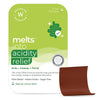Sometimes, after a meal, a slow, lingering burn rises in the chest, accompanied by an uncomfortable tightness in the throat. At first, it feels like a reaction to spicy food, an occasional inconvenience that fades with time. But gradually, the discomfort becomes more frequent, creeping into daily life—turning indulgent meals into moments of regret. What was once an isolated episode of acidity begins to resurface more persistently, often striking at night and disrupting sleep.
Reason: As the body changes with age, so does digestion. The stomach produces fewer digestive enzymes, metabolism slows, and the esophageal muscles weaken, making acid reflux, heartburn, and persistent acidity more common. These digestive disturbances not only interfere with comfort but can also impact energy levels and overall well-being. While popping an antacid may offer temporary relief, addressing the root cause and incorporating natural strategies can help restore balance, ensuring long-term digestive health.
Before exploring effective ways to manage acidity, let’s first understand why it increases with age.
Causes and Symptoms of Increasing Acidity
The digestive system operates like a finely tuned machine, but over time, its efficiency declines. Several age-related factors contribute to heightened acidity:
Weakened Digestive Function
With age, the stomach produces fewer digestive enzymes and hydrochloric acid, slowing down digestion. Surprisingly, what feels like excess acid may actually stem from insufficient acid, leading to food fermentation and reflux-like symptoms. (NIH)
Weakening of the Lower Esophageal Sphincter (LES)
The LES acts as a protective valve between the stomach and esophagus, preventing acid from rising. However, as this muscle weakens over time, acid reflux becomes more frequent.
Increased Sensitivity to Triggers
The body's tolerance for certain foods—spicy dishes, caffeine, and acidic fruits—diminishes with age, making heartburn and acidity more common. (NIH)
Recognizing Symptoms of Age-Related Acidity
Detecting symptoms early can prevent them from escalating into more severe conditions like GERD (Gastroesophageal Reflux Disease). Common signs include:
-
Persistent heartburn, especially after meals
-
Bloating and excessive burping
-
A burning sensation in the chest or throat
-
A sour or bitter taste in the mouth, particularly in the morning
-
Difficulty swallowing or a sensation of food being stuck
-
Nighttime reflux that disrupts sleep
If these symptoms become chronic, consulting a healthcare professional for proper diagnosis and management is recommended.
Effective Ways to Manage Acidity Naturally
Rather than relying solely on medications, simple lifestyle and dietary modifications can help keep acidity in check.
Mindful Eating Habits
-
Opt for smaller meals: Large portions put extra pressure on the stomach, increasing the risk of acid reflux.
-
Eat slowly and chew thoroughly: Proper chewing aids digestion and minimizes strain on the stomach.
-
Avoid trigger foods: Spicy, fried, and acidic foods—such as citrus fruits, tomatoes, coffee, and alcohol—can exacerbate acidity.
-
Incorporate fiber-rich foods: Whole grains, fruits, and vegetables promote digestion and support gut health.
Hydration for Better Digestion
-
Staying well-hydrated aids digestion, but consuming large amounts of water immediately before or after meals can dilute stomach acids. (NIH)
-
Herbal teas like ginger, chamomile, or licorice root can soothe the stomach and reduce acid flare-ups.
Posture and Physical Activity
-
Maintain an upright posture after meals: Lying down too soon allows acid to move upward.
-
Take light walks: A short walk post-meal aids digestion and helps prevent acid buildup.
-
Avoid tight clothing: Garments that put pressure on the abdomen can push acid into the esophagus.
Stress Management and Sleep Hygiene
-
Stress triggers acidity by stimulating excess stomach acid production. Techniques like yoga, meditation, and deep breathing can help manage stress-induced acidity.
-
Maintaining a consistent sleep schedule is crucial. If nighttime reflux is a concern, elevating the head while sleeping may provide relief. (NIH)
Simple Daily Habits to Prevent Acidity
Incorporating small, mindful habits can significantly improve digestive health:
-
Avoiding late-night meals: The last meal of the day should be consumed at least 2–3 hours before bedtime.
-
Practicing portion control: Eating in moderation reduces strain on the digestive system.
-
Being mindful of food choices: Identifying and eliminating personal trigger foods can help prevent acidity.
-
Chewing sugar-free gums: It stimulates saliva production, helping to neutralize stomach acid.
Final Thoughts
Acidity may become more frequent with age, but it doesn’t have to control daily life. By adopting mindful dietary, natural solutions, and lifestyle changes, digestion can be optimized for long-term well-being. If symptoms persist despite these efforts, seeking medical advice can help identify any underlying concerns. Prioritizing gut health through prevention and proactive management leads to a more comfortable and healthier life.




























 DOWNLOAD NOW
DOWNLOAD NOW
